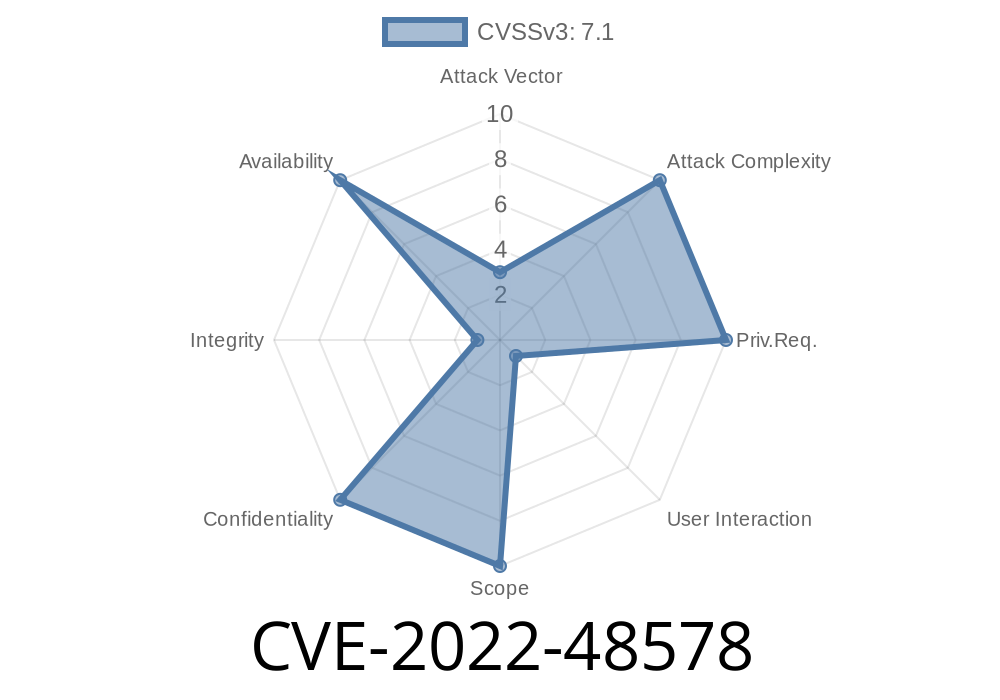---
Apple’s software is known for its tight security, but vulnerabilities do slip through the cracks. In early 2022, researchers discovered a serious flaw in AppleScript’s handling on macOS. Cataloged as CVE-2022-48578, this bug exposed sensitive memory through an out-of-bounds read, triggered just by processing a crafted script.
Let’s unpack how this issue worked, what code was involved, and how Apple finally fixed it in macOS Monterey 12.5.
Understanding the Bug
AppleScript is Apple’s automation language, letting users control apps and system features with scripts. Behind the scenes, the macOS CoreServices component parses and executes these scripts.
What Went Wrong?
A developer discovered that, under certain conditions, AppleScript would read memory outside its intended bounds. If an attacker tricked you into running a tainted script—say, double-clicking a .scpt file—AppleScript might read unintended data and include it in results, crash the process, or even reveal memory contents (like passwords, tokens, or private files).
Apple’s own security advisory phrases it plainly
> "Processing an AppleScript may result in unexpected termination or disclosure of process memory. This issue was addressed with improved bounds checking."
How the Exploit Worked
Let’s dig into a simplified example (the real exploit is far more complex, but this will help you understand the core idea):
Suppose there was a parse_script() function that handled incoming AppleScript commands. Before the fix, it could look something like this (pseudocode):
// Vulnerable function: simplified illustration
int process_script(const char* input, size_t length) {
char buffer[100];
for (size_t i = ; i <= length; i++) {
buffer[i] = input[i];
}
// ... process buffer ...
}
Notice the subtle bug? There’s no check to ensure that i doesn’t go beyond buffer—if length is too large, this overruns the buffer and leaks memory.
*With a maliciously crafted AppleScript payload, a hacker could set length to be way bigger than buffer.*
A malicious script might look harmless, but abuses the structure that gets parsed
-- Contents of evil.scpt
set x to text from character 1 to 100 of "foo"
The AppleScript engine tries to process data beyond what’s available, leading to an out-of-bounds read.
Depending on what’s in memory after the legitimate buffer, two bad things could happen
1. Process crashes ("unexpected termination"): The script engine stumbles into memory it doesn't own.
2. Data disclosure: Sensitive data found in adjacent memory is read and output, perhaps even returned in script results or logs.
Imagine you had a password in memory right after that buffer—the script execution could leak that password right to the attacker!
How Did Apple Fix It?
The fix, according to Apple’s release notes for macOS Monterey 12.5, was classic and effective: improved bounds checking.
Here’s an example of what a corrected function might look like
// Fixed version
int process_script(const char* input, size_t length) {
char buffer[100];
size_t to_copy = (length > 100) ? 100 : length;
for (size_t i = ; i < to_copy; i++) {
buffer[i] = input[i];
}
// ... process buffer ...
}
Now the code only copies as much data as will safely fit in the buffer, closing the hole.
Is Your Mac Safe? What Should You Do?
To protect yourself, always upgrade to the latest version of macOS. This flaw is fixed in Monterey 12.5 and all later releases. You can check your version by clicking the Apple logo > "About This Mac".
Don’t run untrusted AppleScript files from the internet—even if you’re curious. This rule applies especially if you haven’t updated your Mac lately.
More Reading and References
- NIST CVE-2022-48578 entry
- Apple’s official advisory (HT213345)
- The macOS Monterey 12.5 Release Notes
Wrapping Up
CVE-2022-48578 is a classic example of how a small programming mistake—forgetting to check buffer boundaries—can have a big impact on security, even in world-class software like Apple’s.
By simply crafting a special AppleScript, attackers could crash apps or even leak private data stored in memory. Apple quickly fixed this with better “bounds checking,” but it’s a great reminder why updating and never running random scripts is so important.
Timeline
Published on: 06/10/2024 20:15:12 UTC
Last modified on: 06/12/2024 18:07:41 UTC
